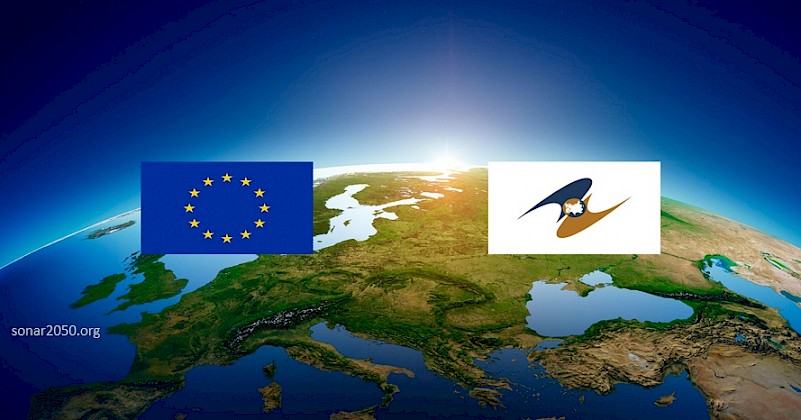Pavel Potapov: Overview of EU Member States’ attitude towards the Eurasian Economic Union

The purpose of the paper is to give an overview of the European Union (EU) countries' attitude toward the Eurasian Economic Union (EAEU). The first part of the work presents the European politicians’ views of the idea of Greater Europe, the official position of the EU regarding the EAEU, and expert assessments of the prospects for interaction between the EU and the EAEU. In the second part, the author analyzes the positions of the EU member states with regard to the EAEU by geographical groups. The concluding part of this paper is devoted to the evaluation of three possible scenarios for the development of EU-EAEU relations.
Overall position
The relations between the EU and the Eurasian Economic Union (EAEU) are inextricably linked with the idea of Greater Europe that implies creating a single space "from Lisbon to Vladivostok". To identify the dynamics of statements by European politicians, it makes sense to single out the period before and after 2014, a turning point in relations between Russia and the EU.
Until the aggravation of relations between Russia and the EU in 2014, a number of bilateral and multilateral negotiations on the Common European Economic Area were held, initiated by the then President of the European Commission, Romano Prodi, in 2001. In October 2010, French President Nicolas Sarkozy stated that the task for the next 10-15 years is to create a common EU-Russia economic space, to abolish visas and to introduce a common security concept. In June 2012, the next chairman of the European Commission, José Manuel Barroso, expressed support for the idea of creating a free trade area from Lisbon to Vladivostok and stated the common goal of forming a visa-free zone between Russia and the EU. In February 2014 (before the Crimea joined Russia), the EU High Representative for Foreign Affairs and Security Policy Catherine Ashton had announced that the common vision of the EU and Russia regarding the creation of a single economic space would strengthen the existing political and economic relationship of the parties...
Read the paper



